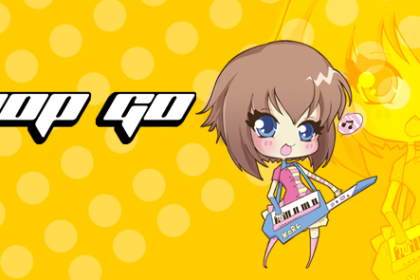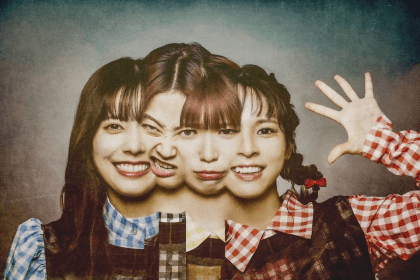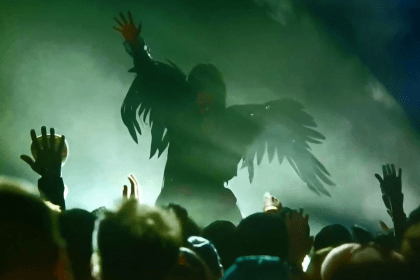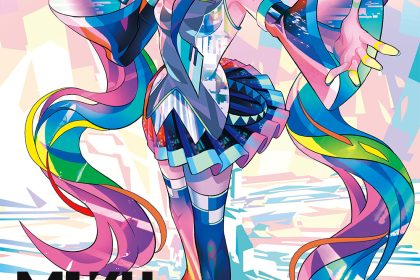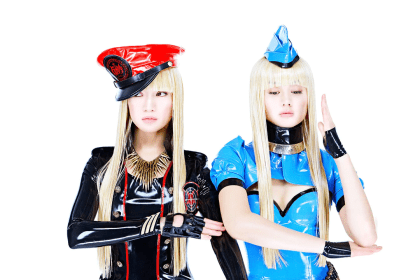How anime girls conquered the charts
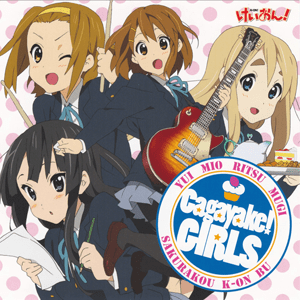
As with any classic anime series, part of the charm of K-On! is the music. It would have been easy to opt for a generic J-Pop theme song – or have the girls performing a forgettable song for their debut performance. But instead there are some cracking good tunes, not least the boisterous Pop/Rock opening theme for the first series ‘Cagayake! Girls’ which perfectly captures the energy and enthusiasm for the entire series.
The credit for the success of these songs lies with musician Tomohiro Oshima – a Tokyo-based composer who works under the alter-ego Tom H@ck (while the lyrical duties were handled by Shoko Omori).
There’s also a few clever musical tributes in K-On!, notably some of the mood music pieces (composed by musician Hajime Hyakkoku), such as ‘Virtual Love’ which is clearly cribbing ideas from Kraftwerk, while ‘Pinch Daisuki!’ references early Synthpop hit ‘Popcorn’.
The commercial releases from the series (issued on the Pony Canyon label) have also made an impact in the Japanese Oricon charts. ‘Cagayake! Girls’ sold over 60,000 copies in its first week alone and made 4th place in the Oricon weekly singles chart. Meanwhile, the infectious melodies of ending theme ‘Don’t Say ‘Lazy’’ managed to shift 67,000 copies as a single release and made 2nd place. ‘Don’t Say ‘Lazy’’ also landed the Animation Kobe’s ‘Best Song’ award.
‘Cagayake! Girls’ and ‘Don’t Say ‘Lazy’’ are sung by the voice performers who play the girls in the series (under the group title of Sakurakou K-ON Bu), notably Aki Toyosaki (who plays Yui Hirasawa) and Minako Kotobuki (who plays keyboard player Tsumugi Kotobuki) – both of which form part of the J-Pop/Anime song outfit Sphere.
Meanwhile, Yoko Hikasa (who voices bassist Mio Akiyama) used her musical experience in K-On! to become part of 5-piece outfit Ro-Kyu-Bu! who took their name from a new sports anime series (in which Yoko voices one of the characters). Ro-Kyu-Bu! released their first single Shoot! (which is also the opening theme to the Ro-Kyu-Bu! anime) in 2011.
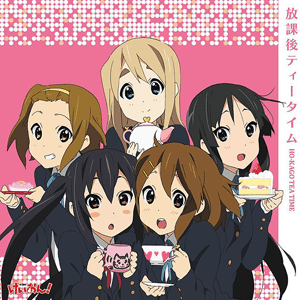
A K-On!-themed mini album titled Ho-kago Tea Time was released in July 2009 which captured many of the insert songs of the first series, including ‘Fuwa Fuwa Time’ and also the wonderful guitar melodies of ‘My Love Is A Stapler’ (which also wins Best K-On! Song Title Of The Year Award!). The album made No. 1 on the Oricon weekly CD charts while also shifting over 67,000 copies. The album also had the accolade of being the first anime character album to reach that slot in the charts.
But the K-On! girls weren’t finished yet as a series of character image singles were also released throughout 2009. These releases gave each voice performer their chance to shine and provided a particular focus on each character. But the standout performance has to be Minako Kotobuki (aka Mugi) with ‘Dear My Keys’ which is a blistering euphoric J-Pop classic.
K-On!’s second series opening theme ‘No, Thank Yo’u and ending theme ‘Utauyo!! MIRACLE’ managed to outdo the success of the previous singles by selling 87,000 and 85,000 copies respectively. They placed 2nd and 3rd in the Oricon chart, but the girls were denied the No. 1 slot by the boys – in the form of SMAP whose ‘This Is Love’ single release made the coveted No. 1 position.
But the album Ho-kago Tea Time II made up for this as it sailed into No. 1 place on the weekly CD album chart selling 127,000 copies. This second mini album is also notable as initial releases came with a cassette version of the demo tracks.
K-On! also appears to be inspiring would-be musicians to take up instruments and form bands. Apparently electric guitar imports to Japan reached an all-time high in 2011 with a growth in sales to school-age girls that sources pin to the success of K-On!
So the potential J-Pop stars of the future could be attributing their own future domination of the Oricon charts to the influence of K-On!


